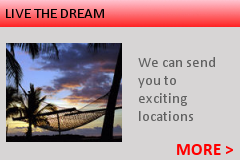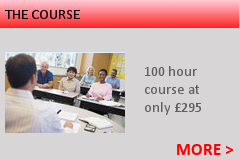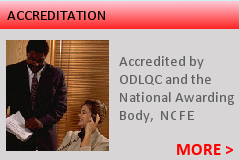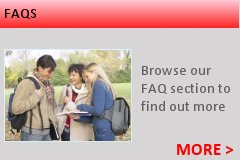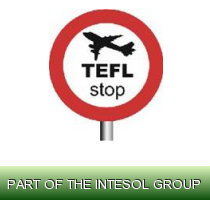

THAILAND
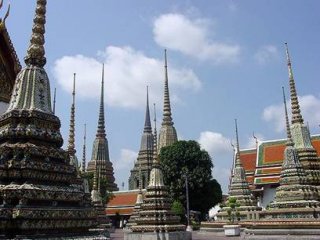
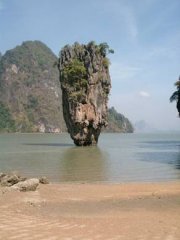

Basic info
Thailand, formerly known as Siam, is an independent country in the heart of Southeast Asia. It is bordered by Burma, Laos, Cambodia and Cambodia. The country is a constitutional monarchy, ruled by King Bhumibol Adulyadej who has reigned since 1946; the worlds longest serving current head of state. It�s capital is Bangkok. Its official language is Thai and its primary religion is Buddhism, with 95% of Thai�s practising. The climate is tropical with continuous monsoons. It is generally rainy and warm from March to September and then cool and dry from September to March. Although having said that, often the �cool� days will reach the high twenties or even early thirties (degrees centigrade), not exactly freezing!
Why should I go to Thailand?
Thailand is one of the world�s most popular tourist destinations for many reasons. It has some of the most jaw-droppingly beautiful beaches on the planet (where all night beach parties are a regular occurrence for all you party people!), amazing ruins of historical palaces and the stunning mountains of the North. When you factor in the delicious fragrant food and the Thais incredible hospitality, you�d have to have a very good reason for not wanting to visit!
There are more teaching positions than there are teachers to fill them in Thailand, for newly qualified and more experienced teachers, meaning that as long as you fulfil the requirements, you�re pretty much guaranteed a job! There are teaching opportunities in most towns and cities in Thailand but the three main places to find work are Bangkok, Chiang Mai and Phuket. If you�re in one of the main cities then don�t worry about owning or hiring a car as they have a very well developed and efficient public transport system, another great reason to go!
What is there to see and do?
Bangkok is the country�s centre of political, commercial, industrial and cultural activities. It�s a fine example of a buzzing metropolitan city, a friendly place that is a shoppers heaven; from glamorous shopping malls to the open-air markets that sell just about everything. Its entertainment is second to none with racy shows such as �The Ladyboys of Bangkok� being a major tourist attraction, although some may say it�s actually quite tame in comparison to the other delights of the red light districts.
There are so many amazing restaurants in Bangkok that it�s impossible to list them all! But a couple to look out for are Bourbon Street Bar and Restaurant, a traditional New Orleans style restaurant with a tank of live crayfish fish to choose for your meal; and Blue Elephant, a romantic restaurant with the best service in Bangkok. Blue Elephant even has a cooking school attached that offers daily cookery classes, you�ll lave being able to make a Red Thai curry like a pro!
If you want to see the city in a slightly different way then why not take the Chao Phraya Express Boat down the river and maybe even take in a day trip to Ko Kret and back; a beautiful island only reachable by boat, containing some of the most beautiful architecture in Thailand along with a fantastic dessert shop.
One more thing to see is the Chatuchak Weekend Market, one of the largest markets in the world. You can buy anything from touristy type gifts to baby squirrels! With plenty of exotic food stalls to keep you sustained as well as being able to buy just about anything you desire, you will need at least one whole day there to be able to fit it all in!
Chiang Mai is probably Thailand�s second city and is known as being the bohemian centre of the country, famous for its enticing cookery classes and language lessons. The city centre is a wonderful sight, which includes over 300 temples and has a backdrop of stunning mountains all around the city as well as an old fashioned moat and wall. But it�s not all about the history as many visitors go to Chiang Mai for its extraordinary boutique hotels and thoroughly modern bars and restaurants.
If you want to shop and eat in Chiang Mai then the Anusan Night Market is not to be missed. Located within the Chian Mai Night Bazaar, this market is best known for it�s delicious fresh seafood and buzzing atmosphere. Try the roasted and deep fried insects if you dare!
Thailand is of course famous for it�s stunning beaches. With powder soft sand and crystal clear waters, they�re like nowhere else in the world. A couple of the best ones - Ao Bang Thao, Phuket, 8km of soft white sand and calm blue seas; and Ko Pha-Ngan, the party beach where on the night of the full moon pilgrims worship the gods with trancelike dancing and neon body paint, you don�t want to miss it!
How safe is it?
Thailand is generally quite safe. There is the occasional violent crime against foreigners but as long as you�re sensible and stay out of the known danger areas, you should be fine. However, petty crime such as pick pocketing is quite common, especially in the cities. You are advised to watch your wallets, purses and other personal belongings, especially in crowded areas. It is also well known for its con artists and cheats, who will often hang around in gangs. They approach people on the streets and try to change money with you etc.
As a foreigner in Thailand you will be fairly obvious so here are a few tips for staying safe: keep your money close, avoid flashing jewellery or other expensive possessions and keep your backpack on your front rather than on your back. Also try to avoid being on your own in unsafe areas.
What qualifications or experience do I need to have? How do I know if I�m eligible?
Everywhere in Thailand will want you to have a university degree. You won�t require a TEFL certificate everywhere but some places will ask for one. Without this qualification you may find it hard to find work in certain places and the better (and better paid!) jobs will go to those with a teaching qualification.
A teaching qualification will show that you�re dedicated and committed to teaching and will also help you feel a lot more confident once you�re in the classroom. You won�t last long if students start firing grammar questions at you and you don�t know what they�re talking about!
Please remember that to be officially qualified to teach, your course must be internationally recognised which means being at least 100 hours long and accredited by an independent accrediting body. If not, you may find it very difficult to find a school that will accept you. As convenient as they may seem at the time, weekend courses will not qualify you to teach.
Previous teaching experience is not essential in most schools in China, although some employers may be a little more fussy.
You need a work visa to obtain paid work in Thailand. 3 month non-immigrant B visas can be obtained once you have a job and then if you want to stay longer your employer will have to help you to get a teacher�s license and a work permit. Usually you, the teacher, are responsible for paying for the non-immigrant B visa and your employer will take care of the work permit and teachers license.
Are there any age restrictions?
There is no upper age limit for TEFL in the majority of Thai schools. In fact, the majority of TEFL teachers are over 40 and many are over 50! It is still always a good idea to check with your employer but it is doubtful that you will experience any difficulties.
What will I earn and what currency do they use?
The currency in Thailand is baht (THB). The average salary per month is 20,000 - 55,000 THB which is equivalent to approximately �420 - 1150 ($650 - 1800). The more qualifications and experience you have, the more you will earn. Teachers in private institutions earn more and work more hours (approximately 30,000 � 35,000 THB), while teachers in government schools get paid less and work fewer hours (approximately 20,000 � 25,000).
Accommodation in Thailand won�t usually be supplied by your employer, but it is very easy to find and fairly cheap too. In Bangkok it should cost you around �150 � 200 for a nice apartment, complete with air conditioning. Outside of Bangkok, accommodation is even cheaper. Watch out for the cost of air conditioning though as it�s easy to forget about and can really add up at the end of the month.
It is easy to live very cheaply in Thailand, with cheap food, drink and travel. It is fairly easy to save over half of your wages, depending on your lifestyle. As long as you�re not going out on the town, eating in fancy restaurants and getting taxis everywhere then you should be able to save a substantial amount to take home.
What will the schools be like and what hours will I work?
As a TEFL teacher you may find work in a variety of places with a wide range of students, these may include: universities, state primary and secondary schools, summer camps and private language institutes. Because of this, the ages you will be teaching varies too; teenage secondary school and young primary school pupils are the most common, although there is a growing demand for business corporate classes.
Teachers in private institutions usually work around 20 � 25 hours a week, although paid overtime is often possible. You may have to take evening classes and work some weekends.
In government schools your hours will be a lot shorter, from 12 � 18 hours a week, with evenings and weekends off. Although the salary is lower than in private academies (please see above), government schools have the added bonus of the long, often paid, holidays. These can add up to 5 months at some schools!
Anything else I should know?
Thai people can be quite conservative when it comes to dress and behaviour. New teachers should make sure to make sure they dress smartly when teaching and watch their behaviour inside and outside of the classroom. Also be careful not to touch your students on the head, it is a sacred part of the body to Thai people. Lastly, whatever you do don�t say anything negative about the King or any member of the Royal Family when you�re in company, it could even lead to legal action; the last thing you want when you�re away from home!
In regards to accommodation, be sure to check it out first as it may differ quite a bit from home! Most teachers in Thailand live in studio apartments which may not always have kitchens due to street food being so cheap and readily available. Also - brace yourselves - don�t expect a western style toilet that you will most likely be used to, the squat toilet is to be expected in most places in Thailand.
